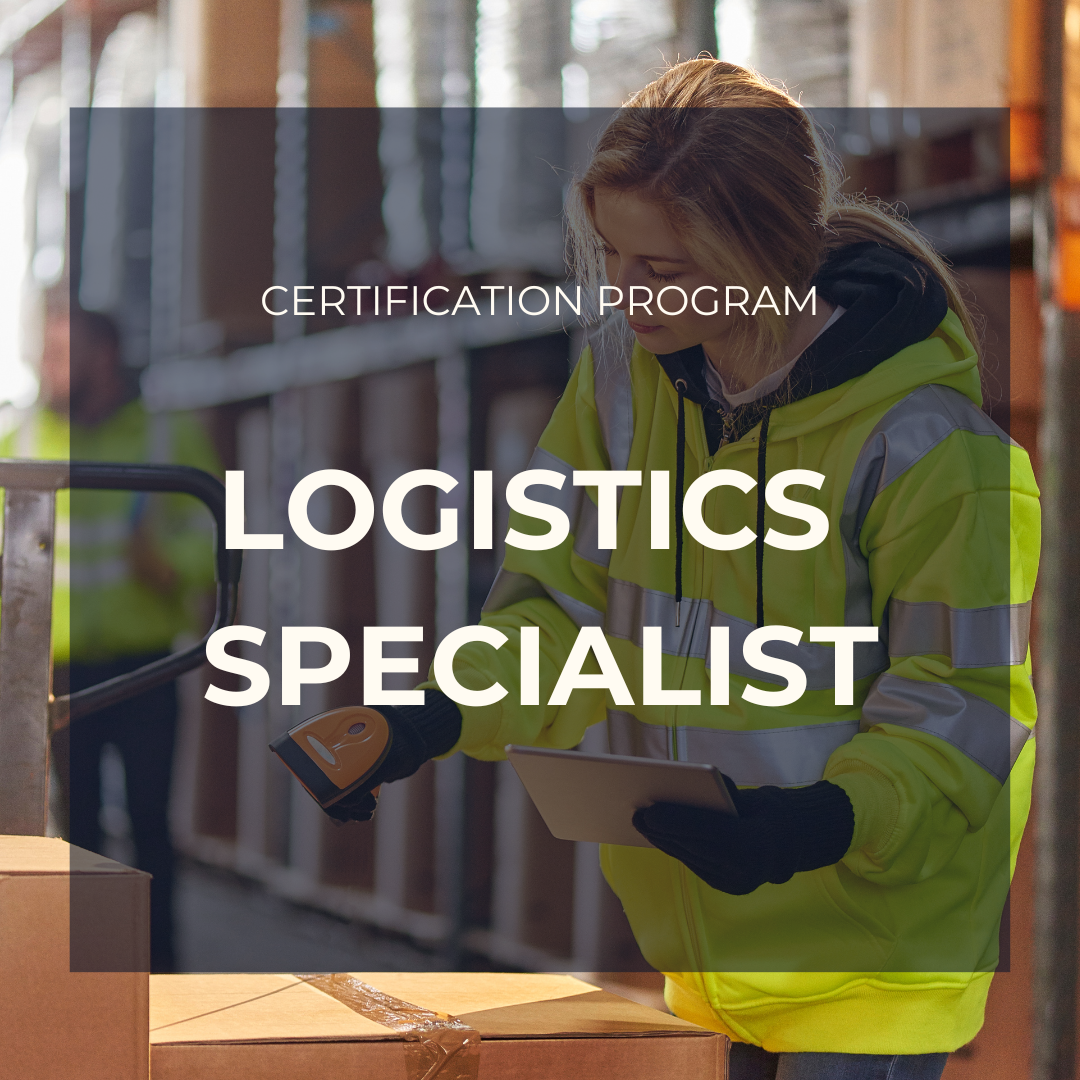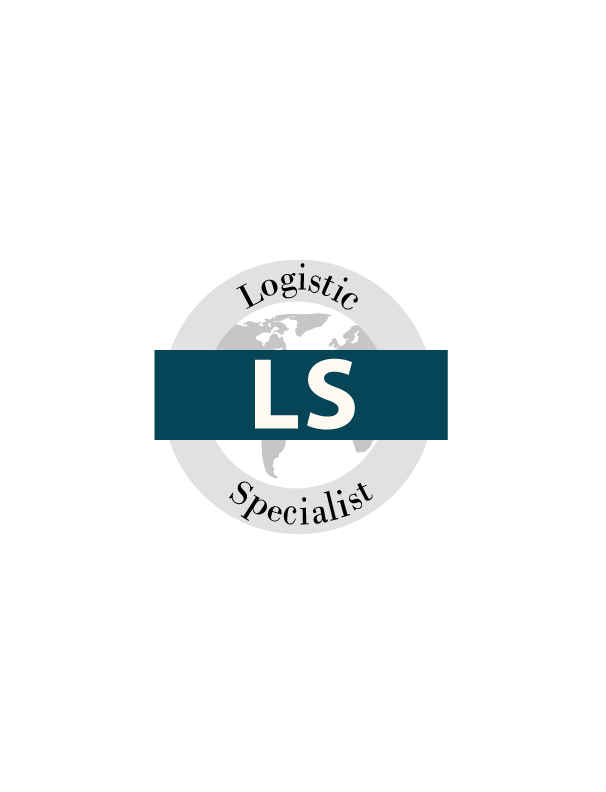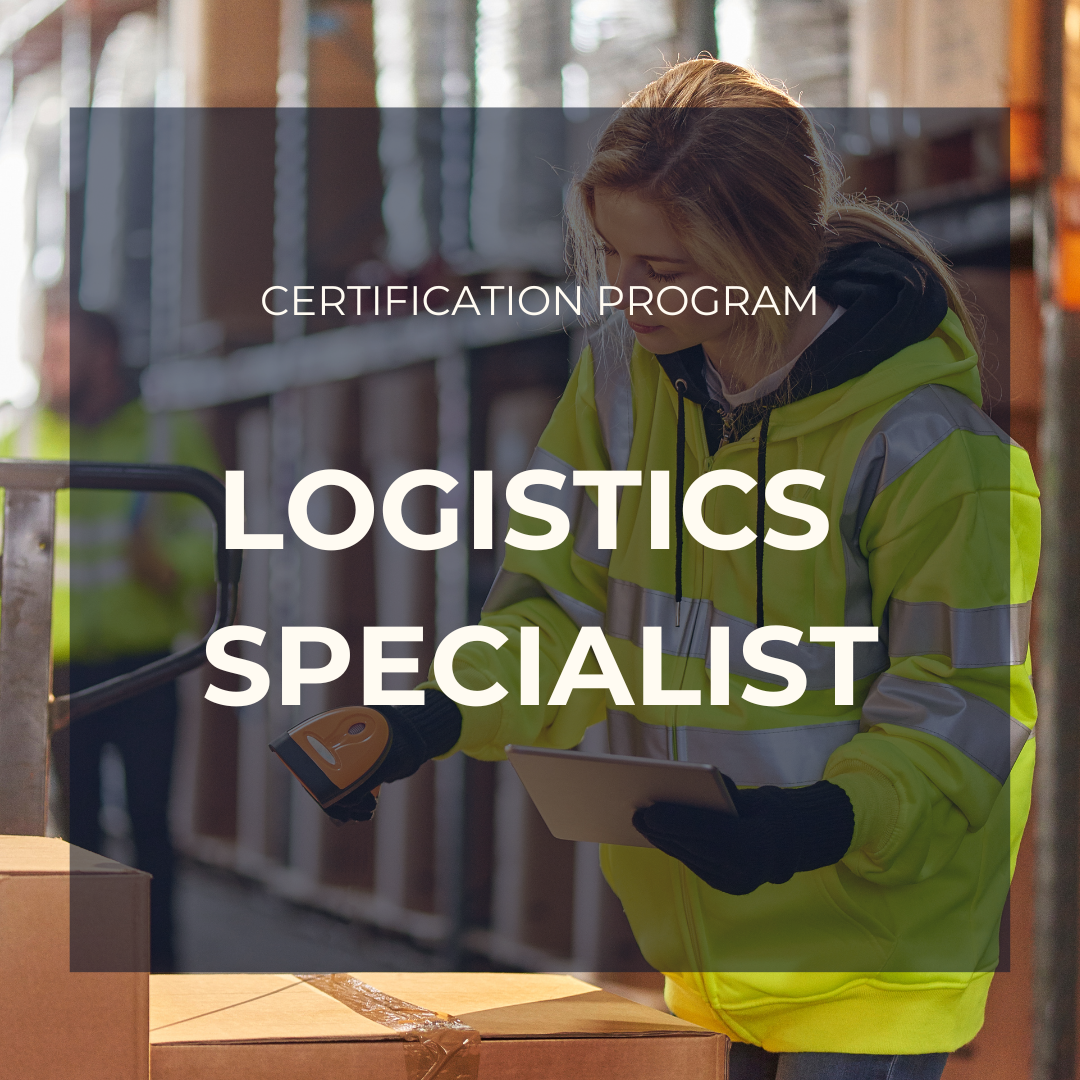The Logistics Institute
Logistics Specialist
Logistics Specialist
Couldn't load pickup availability
Upon registration, you will receive an email with a link to your e-learning account within one business day. You can then start at your own pace.
** Scroll down for more details
* Program discounted for full program vs. individual modules

Program Overview
The LS program is designed for logisticians working in tactical and supervisory careers, as well as for those aspiring to future managerial positions. This program creates a foundation for a successful career in logistics and supply chain management, enhancing your understanding of essential SCL concepts. At the end of the program, LS professionals are also equipped with a problem-solving toolkit, a skill necessary to succeed in the 21st century supply chain landscape.
Course Content
This course is divided into 3 modules which must be completed to obtain your LS designation.
Collapsible content
MODULE 1: Integrated Logistics Networks
This module helps you build the skills necessary to promote customer value creation by optimizing each link in the supply chain, and to build an integrated channel management process to improve both internal and external supply chain processes.
Through this module, you will gain an understanding about:
- designing the optimal network
- selecting an appropriate distribution channel
- appropriate trade-offs between transportation, warehousing and inventory costs in the logistics supply chain using modeling techniques
- the role that Activity Based Costing can play in diagnosing and improving logistics processes
- the three distinct steps in demand data gathering (forecasting) and principles of demand management
- creating relationships between demand and inventory
- developing the ability to employ a continuous improvement toolkit
- developing the ability to carry out quality customer value creation programs
MODULE 2: Logistics Process Diagnostics
This module helps you gain insight into how to better manage the supply chain, and enhances your awareness of the differences between “supply chain” and “logistics”. You will also learn the practical skills of benchmarking, costing, and network design, and fully realize the importance of collaboration in a supply chain.
This module uses a supply chain simulation to concentrate on the structural, functional and operational aspects of making logistics decisions. With the intent to reduce non‐good quality costs to zero, you will focus on:
- understanding the synchronization of goods and information
- recognizing the powerful role of the system in shaping our behaviour (“structure produces behaviour”)
- the impact of decisions and actions on the system as a whole
- the importance of coordination among levels in an organization
- learning diagnostic, systems-thinking and process skills through an experiential method.
MODULE 3: Frontline Logistics
This unique module provides you with an 8-step problem-solving toolkit. It uses the context of common problems facing organizations at the frontline operations level to guide you through developing this key skill. Problem-solving at every level is a key leadership skill that will help you in each stage of your SCL career.
LS PORTFOLIO: A final assignment will guide you through applying the tool towards a real problem or situation you are facing/have faced at work. Through this applied learning method, you will create a problem-solving toolkit for yourself, to use in your company, as well as throughout your career.
To create a portfolio relevant to your role in your organization (or a role you aspire to), participants can choose any one out of the five topics listed below.
TOPIC 1: INVENTORY
- Good Logistics Practices: Define personal and company objectives; Modify company procedures to meet standards; Address and remedy performance gaps among employees
- Scheduling Resources: Successfully forecast weekly resources; Increase demand for resources; Resolve discrepancies
- Assembling Orders: Effective order picking procedures; Methods for correctly picking products; Methods for reducing product shortages; Efficient guidelines for assembling orders; Methods for proper vehicle loading
- Controlling Inventory: Efficiently reconcile inventory; Plan inventory around projected demand; Create effective space utilization
- Product Damage: Understand the costs of damage to you and your customer; Learn how to minimize damage; Understand packaging limitations and restrictions
TOPIC 2: OPERATIONS
- Good Logistics Practices: Define personal and company objectives; Modify company procedures to meet standards; Address and remedy performance gaps among employees
- Operating Procedures: Physical distribution procedures; Importance of procedure education and compliance; How to effectively revise procedures
- Controlling Budgets: Be able to present realistic information in budgets; Understand the difference and importance of fixed and variable costs; Be able to negotiate timely action to deal with real variances; Be able to generate a projection of these variances in real time
- Operations Floor Safety: Understand the rules and regulations of forklift safety; Be able to develop equipment procedures; Have the tools to create certification programs for forklift operation
- Managing Personnel: Identify real personnel problems; Maintain policy compliance; Maintain an effective resolution process; Create a non-confrontational environment
TOPIC 3: SERVICE
- Good Logistics Practices: Define personal and company objectives; Modify company procedures to meet standards; Address and remedy performance gaps among employees
- Customer Service: Maintain effective and efficient customer service standards; Provide necessary service information; Solve issues which cause service variances
- Customer Complaints: Understand customer expectations; Develop problem solving and communication skills; Create resolution guidelines
- Scheduling Resources: Successfully forecast weekly resources; Increase demand for resources; Resolve discrepancies
- Product Damage: Understand the costs of damage to you and your customer; Learn how to minimize damage; Understand packaging limitations and restrictions
TOPIC 4: SAFETY
- Good Logistics Practices: Define personal and company objectives; Modify company procedures to meet standards; Address and remedy performance gaps among employees
- Operations Floor Safety: Understand the rules and regulations of forklift safety; Be able to develop equipment procedures; Have the tools to create certification programs for forklift operation
- Health Safety & Environment: Proper and efficient environmental protection; An effective company health and safety program
- Managing Personnel: Identify real personnel problems; Maintain policy compliance; Maintain an effective resolution process; Create a non-confrontational environment
- Scheduling Resources: Successfully forecast weekly resources; Increase demand for resources; Resolve discrepancies
TOPIC 5: TRANSPORTATION
- Good Logistics Practices: Define personal and company objectives; Modify company procedures to meet standards; Address and remedy performance gaps among employees
- Selecting the Carrier: Effectively manage company’s carriers; Efficiently match customers with carriers; Develop a system to monitor carrier performance
- Scheduling Carriers: Create workable schedules for carriers and resources; Make adjustments for emergency situations and to monitor carrier performance
- Assembling Orders: Effective order picking procedures; Methods for correctly picking products; Methods for reducing product shortages; Efficient guidelines for assembling orders; Methods for proper vehicle loading
Scheduling Resources: Successfully forecast weekly resources; Increase demand for resources; Resolve discrepancies

LS Designation
All professional designations are owned and maintained by the Logistics Community of Interest under the stewardship of the Logistics Institute. Professional designations are registered trademarks of the Logistics Institute.
The LS™ designation belongs to the Logistics Institute as a trademarked asset. LS™ professionals are members of the Logistics Institute. Earning the LS™ designation entails successful completion of the Logistics Specialist program, which is designed to meet the certification requirements set by the Professional Review Board of the Logistics Institute. All program content is developed and owned by The Logistics Institute.
Designations must be renewed on an annual basis for continued use of the trademark. The professional year for all designations runs from November 1 – October 31.
General $95.00
P.Log MembersAuto-Renewed with P.Log Renewal
Program Format & FAQ's
Collapsible content
What is the program format & time commitment?
- To earn the LS designation, candidates must complete the three online modules (above).
- Each self-directed module must be completed within 30 days
- Each module has an average time commitment of four – six hours per week.
- The certification process must be completed within one year (can be achieved earlier as well).
- Register and start at any time. Access is provided within one day.
- Our program team will work with you on coordinating your schedule for this program after your first module is completed.
- Participants can take breaks between modules, or continue to work through them at your own pace.
Are there any pre-requisites?
- There are no pre-requisites for enrolling in this program.
- A minimum of 1 years’ overall business experience is required at the time of completion and certification (experience acquired while taking the program will be accepted).
How can I register?
Participants can register in the full program, or an individual module.
Can I receive a tax receipt?
An official tax receipt will be issued for income tax purposes for the program fees paid, as allowed by the CRA.
